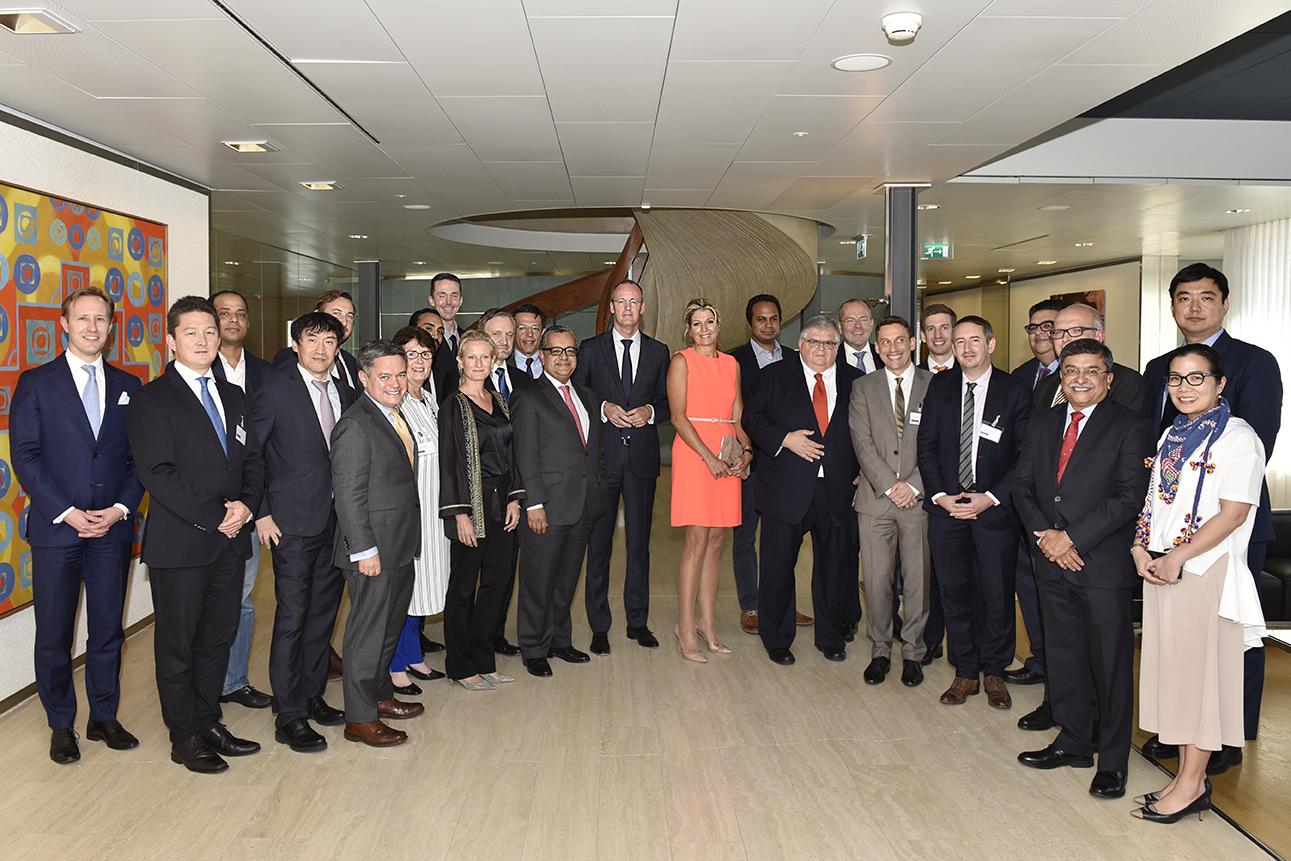Opening remarks at the 2nd Fintech and Financial Inclusion Roundtable

Thank you very much Governor Knot for DNB’s hospitality for the second time. General Manager Carstens, ladies and gentlemen, it is my pleasure to welcome you all to Amsterdam once again. It is wonderful that you have all made time to be here.
As you know, this is a small group by design that addresses the topic of fintech and financial inclsuion. All of you were carefully selected for your leadership as regulators, fintech innovators, and development partners doing a lot of work in this area. Please engage openly and bring your own expertise to the discussions.
Just to recap, why are we here?
All of us recognize the power of financial innovation for financial inclusion. Yet we realize that we need to learn together, about both the risks and opportunities.
Of course, we know that fintech solutions can drive efficiencies by making products and business processes cheaper and faster. Mobile money is a good illustration. Fintech solutions can create more customer-centric products that give users better experiences. And they can improve speed, innovation, and transparency in financial supervision and regulation. On the other hand, fintech can amplify threats to consumers, such as data privacy breaches and cybersecurity risks, as well as leaving behind unconnected and less digitally literate consumers.
We are also here because we recognize the power of having regulators and fintech innovators find solutions together to tackle risks and accelerate progress. And we do understand the value of coming up with new ways for pioneering regulators to share their experiences with peers in other countries beginning to address these issues.
Over the last decade, leading regulators who shared their knowledge on how they developed mobile money regulations played a really critical role in helping millions of people enter the formal financial system. I really hope that this meeting will be one step towards a similarly fruitful journey for regulatory initiatives for fintech.
Secondly, what are we here to discuss?
This is now our second DNB-UNSGSA rendezvous on fintech.
Last year, we agreed that we need to intensify the close dialogue between regulators and fintech innovators to ensure that regulatory tools keep up with the fast pace of innovation while enabling innovative products to improve customers’ well-being.
We also identified that doing so was particularly challenging for some emerging and developing economies. They have fewer resources and limited staff with the technology skills to understand fintech’s rapid development.
Bearing these takeaways in mind, we designed today’s roundtable and its follow-up activities with the intention to come up with two outputs:
A set of lessons learned and good practices for regulating innovation to promote financial inclusion in emerging and developing economies, but also in developed countries.
And a draft set of principles or guidelines to assist regulators in regulating fintech for financial inclusion.
Central to our discussion is the draft report from the UNSGSA Fintech Working Group, produced by the Cambridge University’s Centre for Alternative Finance in collaboration with my office, and generously funded by the Monetary Authority of Singapore. Thank you very much.
I would like to share four insights from the report that I found most pertinent to kick off our discussion.
First, regulators cannot help all fintech companies nor encourage all forms of financial innovation at once. Innovation offices in developing and emerging economies should focus their attention on a few areas with clearly defined eligibility criteria, such as fintech models that can help underserved populations. Or could enabling new entrants help financial inclusion?
Second, regulatory sandboxes by themselves are not enough and they may not be suitable for all markets. Therefore, complementary initiatives, either in conjunction or in place of sandboxes, such as innovation offices, are often needed. I heard you had some discussions on cost and benefits, which will benefit the final report. The notion of proportionality also needs to be addressed.
Third, starting small and building momentum matters for regulators to adopt regtech tools. A critical first step is to quickly begin testing with one or two use cases. These should solve carefully defined and understood problems. More and more small tests can build regulators’ confidence and their ability to tackle more substantial use cases, especially where resources are constrained.
Fourth, fintech innovators can play a crucial role in helping regulators identify problems and crowdsource solutions. On top of that they can co-create initiatives, such as industry sandboxes, TechSprints, or engage in consultation and provide data to inform evidence-based regulation, which is very important. Fintech innovators are becoming an integral part of regulatory innovation.
These are just a couple of examples of what we learned from the report and I would like to emphasize that it is still a draft. The final draft will be released in November at the Singapore Fintech Festival. Your inputs are essential to make the lessons learned, the good practices, and the draft principles a practical resource for emerging and developing countries’ regulators. Therefore, I am looking forward to hearing from all of you on what we agree on and what requires more inputs and consideration.
Finally, welcome to the Netherlands. You can count on my continued support and I look forward to hearing from all of you during our discussions today.